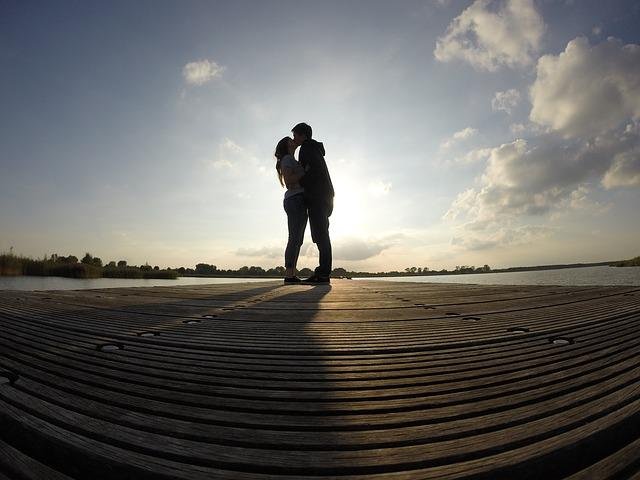Is it okay to show Vulnerability in a relationship?
These questions were designed to assist you to enhance your relationship by helping you better understand each other and encouraging you to take action to improve your relationship and deepen your love for each other.
For both of you, some of the questions may have triggered hot buttons, phobias, and places of grief and shame. It may have been tough to negotiate these questions and your responses without becoming defensive or angry. This reveals where you and your partner need to improve on your relationship.
Remember that below all those unpleasant emotions or needs lies a deeper feeling or need that you may have suppressed or not fully explored. You can only truly recover by opening up and communicating these deeper feelings with your loved one. Vulnerability is required in an intimate, loving connection.
“Just fall back and let the universe catch you,” my elder sister advised me at a particularly trying period in my life. A sense of calm came over me as she said that. What a wonderful feeling it would be to just let go and know that everything would be OK.
That I was all right. The concept provided a little reprieve from my troubles. I was free of the agony and farce of trying to keep things under control.
Imagine hearing these words from someone you care about: “Just fall back and let me catch you.” Simply recline and tell me everything.
Simply return to yourself, warts and all. I’ll always adore you. “You can count on me.” Imagine the relief of not keeping it all in, of being entirely honest and upfront about your deepest desires and worries, safe in the knowledge that you will not be mocked or rejected. Instead, you will be welcomed. Imagine being entirely vulnerable and exposed, and instead of driving your significant other away, it draws you closer.
Unfortunately, most of us have been taught not to be vulnerable from an early age. We’ve learned the bitter lesson of exposing our hearts, admitting our truths, and revealing our flaws, only to have our hearts crushed and our flaws mocked.
We’ve learned to hold back, to act different, to keep our hearts safe. The greatest defense against pain is a solid attack, as we’ve discovered. As a result, we construct brick barriers. We keep our distance from one another. We put on a happy, smiling face to avoid giving the impression that we aren’t put together and flawless.
Maintaining this facade is, of course, tiring and unpleasant. Being someone you do not require a lot of effort. It protects you from emotional anguish in the short term, but it wreaks havoc on your personal connection in the long run.
Intimacy will wither and perish without being vulnerable, like a flower without strong roots.
Vulnerability is a necessary component of your romantic connection. This is why:
Vulnerability exposes the truth.
The satisfaction of being totally oneself comes from being able to present yourself fully to another person. And he or she gains from knowing the whole of you, not just the polished, flawless portions. You both appreciate the depths and nuances of each other’s good, terrible, and ugly sides. Being thoroughly known has its own charm and security.
Vulnerability breeds confidence.
Your trust in another person grows as you share more and more of yourself, and he or she treats you with respect, love, and decency. As you reveal more and more of yourself, you also encourage the other person to be vulnerable. You give him or her the courage to reveal the aspects of themselves that are hidden or ashamed. Both individuals feel safe and secure knowing they have each other’s backs and are still loved and respected.
Vulnerability encourages development.
Within the safe harbor of a trusted relationship, the vulnerability enables you to honestly reflect on your genuine self. You may evaluate the adjustments you need to make and the person you want to become without losing confidence. Living truly requires self-honesty, which opens doors to untapped potential.
Vulnerability fosters trust.
You’ll notice that the art of vulnerability really strengthens you as you practice expressing your thoughts, acknowledging your weaknesses, and confessing your anxieties. You learn that you can open yourself without dying or losing your identity. Your capacity to remain solid in your own truth strengthens you.
Vulnerability promotes wound healing.
Acknowledgment, acceptance, and awareness are the foundations of all healing. You cleanse yourself of the blocked sensations and tension of attempting to fake or ignore your pain or fear by being honest about it rather than trying to flee from or conceal it.
You enable the light of truth to spark the healing process by bringing things out in the open.
Vulnerability brings people together.
We all have aspects of ourselves that we are hesitant to discuss or share with others. We all experience anguish, humiliation, and self-doubt. You connect with another person’s humanity when you’re able to open up about these things with them. You demonstrate to that person that you are similar to them, that you have similar sentiments and worries. This strengthens your relationship.
Vulnerability increases love’s depth.
Vulnerability implies you may communicate your innermost sentiments for someone else and share love on a deeper level. You may be entirely open emotionally, psychologically, and physically, and your loved one can reciprocate.
Vulnerability enhances our appeal.
Authenticity is the most appealing quality. You become more intriguing and alluring by being completely yourself and firmly embracing both your positive and poor traits. Others will feel secure and confident around you because of your ability to express yourself honestly, share with others, and accept your shortcomings.
Vulnerability helps us to be at ease with change.
We have no idea how people may react to us when we are vulnerable. By putting yourself out there, we are taking a great risk. Uncertainty produces anxiety and suffering. We get acclimated to uncertainty and can bear the bad sensations it produces by practicing vulnerability. We may use this new toughness to other areas of danger in our life, stretching ourselves and expanding our horizons.
“The real catastrophe is to come to the end of your life only to realize that by playing it safe and avoiding risk, you took the biggest risk of all, and lost the most valuable thing that you could lose: a life rich with meaning, feeling, and joy, one that not only filled your own cup to the brim but spilled over to fill the cups of others who were moved and inspired by you,” say, relationship experts, Linda and Charlie Bloom.

I hope you and your partner continue to practice vulnerability with each other, and that you provide each other with a safe and loving place where you may be completely yourself without guilt, shame, or judgment. If any of these questions produce a split between you, or if you can’t find a mutually agreed solution or compromise to an issue, please make it a point to consult with a qualified relationship counselor for assistance.
Allowing friction, misunderstandings, or anger to grow may suffocate your relationship’s intimacy and pleasure.
The best present you can ever get is the love and closeness you share with one other. It is at the center of a happy, fulfilled existence. Protect your relationship from the tempests of wounded emotions, misunderstandings, and hurtful words by treating it with the greatest care.
Continue to ask each other questions and listen with love and understanding. Deal with problems as soon as possible. Look for methods to prioritize your relationship every day so that you and your spouse may experience deep and lasting pleasure, satisfaction, and passion for the rest of your life.
How To Let Your Partner Know About A Habit That Bothers You.
Questions To Ask To Increase Emotional Intimacy
How To Use Sex And Affection For A Lasting Relationship.
What Should I Never Say In Anger Or Playfulness In A Relationship?
How To Know Your Primary Emotional Needs?
How Can We Have More Intimate Conversations?
How To Use Respect And Kindness For A Deeper Relationship.
How To Express Love Emotionally.
How To Recommit To Your Marriage By Changing Your Mindset
Why Do Men Find It Difficult To Commit To A Relationship?
How Can I Support My Partner During A Time Of Crisis?
What Should Your Long-Term Financial Goals Be In A Relationship?
What Are Our Guiding Principles As Parents?
How Does Your Work Impact The Overall Happiness In A Relationship?





